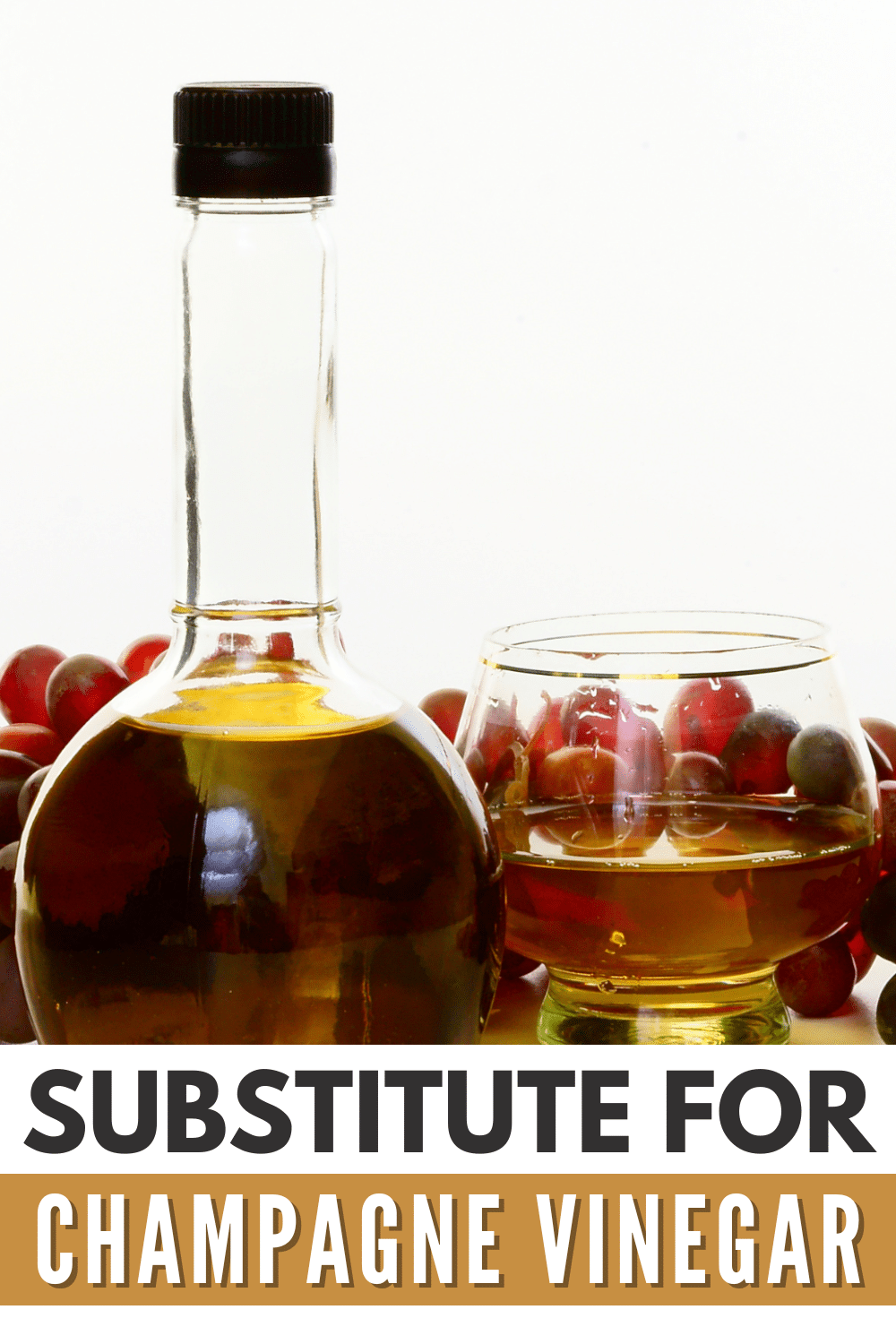Looking for a good substitute for champagne vinegar?
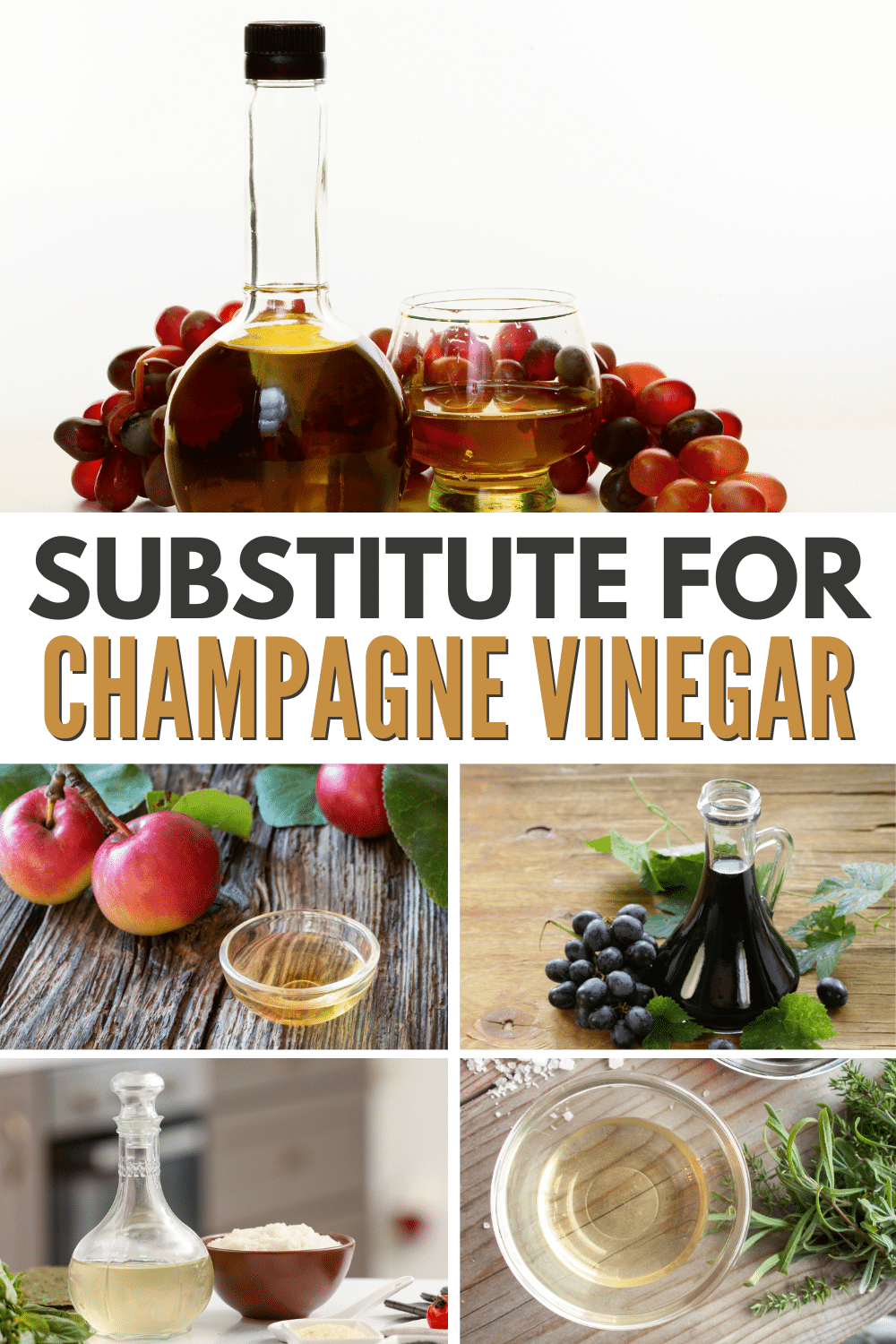
Champagne vinegar is one of my favorite vinegar types to use in a vinaigrette or in meals that call for something sour. However, I can’t deny that it’s less accessible and pricier than others, so it’s handy to know a good number of substitutes out there.
Luckily, there are many alternatives that you can use for recipes that use this ingredient. While they are not exactly the same, most of these substitutes’ properties can work similarly to champagne vinegar.
You don’t have to miss out on delicious dishes if you can’t get your hands on it, thanks to these amazing alternatives!
Jump to:
What Is Champagne Vinegar?
We all know what champagne is: a bubbly drink made from grapes in France’s Champagne region. Well, champagne vinegar is similar, kind of.
This type of vinegar is made using the same grapes, which are well-loved thanks to their complex flavor. Due to the same flavor profile, these grapes make incredible vinegar bases.
Simply put, the Champagne grapes are pressed for their juice, which is fermented into wine. After this, the wine gets put in oak barrels for further aging until it reaches a specific flavor before it’s distilled into vinegar.
Champagne vinegar provides a specific sweet and fruity flavor profile that easily differentiates it from many other kinds of vinegar. It has a light color with a delicate flavor to match.
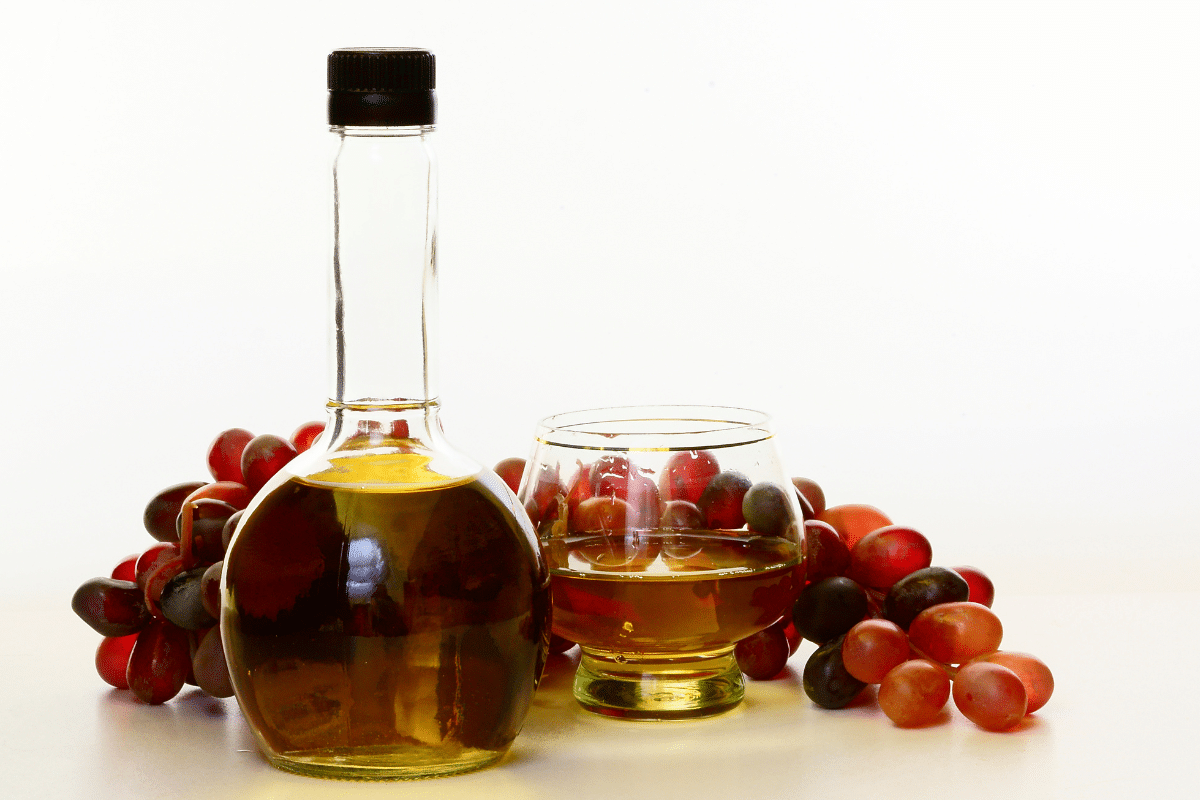
It’s also moderately acidic – not as harsh as other types, while not being too bland. This makes it a great ingredient for vinaigrettes and marinades where you don’t want it to overpower the other ingredients’ flavors.
Since champagne vinegar manufacturing is quite meticulous, I’m not surprised that it can be expensive. But it doesn’t mean you must miss out on dishes that call for it!
Why Substitute Champagne Vinegar?
Food Sensitivities and Health Conditions
While grape and vinegar allergies are rare, some people still get bad reactions from champagne vinegar. So, to avoid triggering any harmful reaction, whether mild or potentially life-threatening, it’s best to avoid using this ingredient if you’re allergic to it.
Preference in Taste
While I love how champagne vinegar tastes, I know that not everyone shares my preferences. Some find it too acidic, while others find it too mild. Some don’t like its specific delicate flavor and prefer other fruity notes.
Since different people have different tastes, using a substitute for champagne vinegar, depending on what you like, is quite reasonable.
Availability and Accessibility
Picture this: you’re all out of champagne vinegar, but a dish you need to make calls for it. You don’t have to worry about availability if your local grocer carries champagne vinegar regularly, but this is not the case for many people.
There are places in the U.S. and around the world where champagne vinegar is hard to find. Conversely, it might be beyond some people’s budget even if the local store has it.
In these cases, there’s no harm in using alternatives to champagne vinegar for recipes that call for it.
5 Best Substitutes for Champagne Vinegar
White Wine Vinegar
The closest alternative you can get for champagne vinegar is white wine vinegar. The way it’s made is quite similar to the making of champagne vinegar, so their flavors are close enough.
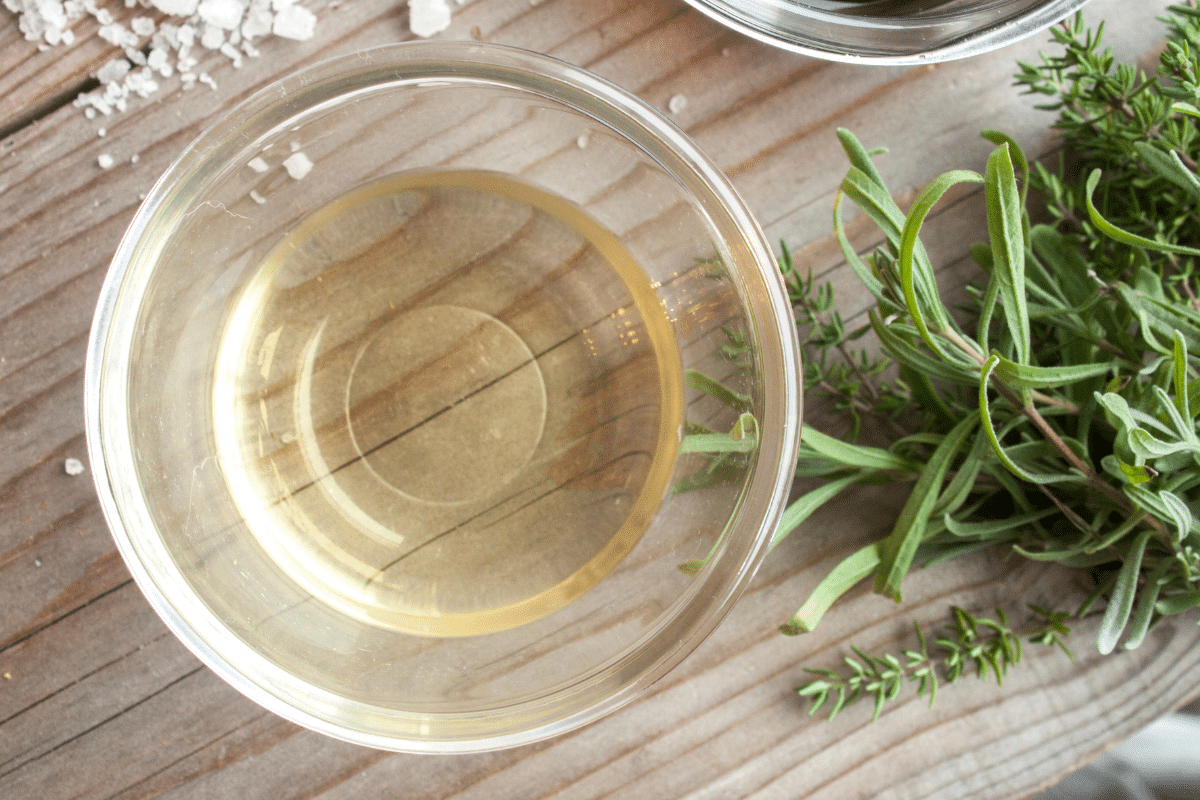
Compared to champagne vinegar, white wine vinegar tends to be sharper. So, for dishes calling for a mellower vinegar, you may look for other alternatives, or you can dilute it.
But what makes this one of the best champagne vinegar substitutes is its accessibility. Compared to champagne vinegar, this is easy to find and is available in most stores.
In place of champagne vinegar, use white wine vinegar at a 1:1 ratio. If your dish needs a more moderate flavor, dilute your white wine vinegar with water first.
Apple Cider Vinegar
You can use apple cider vinegar (ACV) for a similarly fruity flavor if you don’t have champagne vinegar. Made from apple cider, it’s another easy-to-get choice since you probably already have this in your panty.
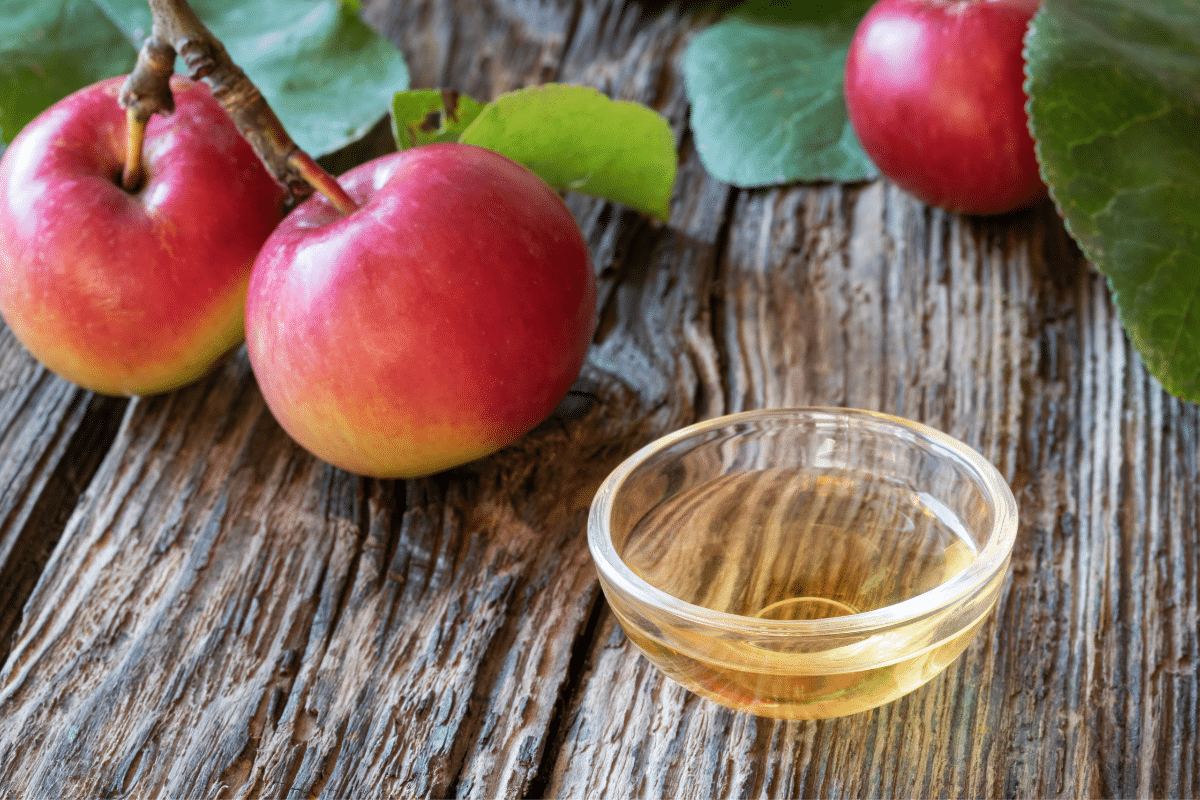
ACV has a fruity taste, but remember that this one has an apple flavor profile and can be a bit tangier compared to champagne vinegar. Although, it’s not as sharp as other common vinegars many of us use.
As a replacement, you can use ACV at a 1:1 ratio.
Sherry Vinegar
One alternative many people love is sherry vinegar, which might also be for you if you prefer a sophisticated flavor profile.
This vinegar has a more complex flavor than champagne vinegar. It features a nutty flavor that is missing in champagne vinegar, but also has a nice sweetness that complements many dishes.
While you can use this for marinades and vinaigrettes, Sherry vinegar would work better as a champagne vinegar substitute in soups, stews, and dishes.
If you’re using this to substitute for champagne vinegar, use half the amount of sherry vinegar for what you use champagne vinegar for.
Rice Vinegar
One of the best things I can find in my local Asian grocery store is rice vinegar. Also called rice wine vinegar, this kitchen staple has many uses, and one of them is being a good alternative to champagne vinegar.
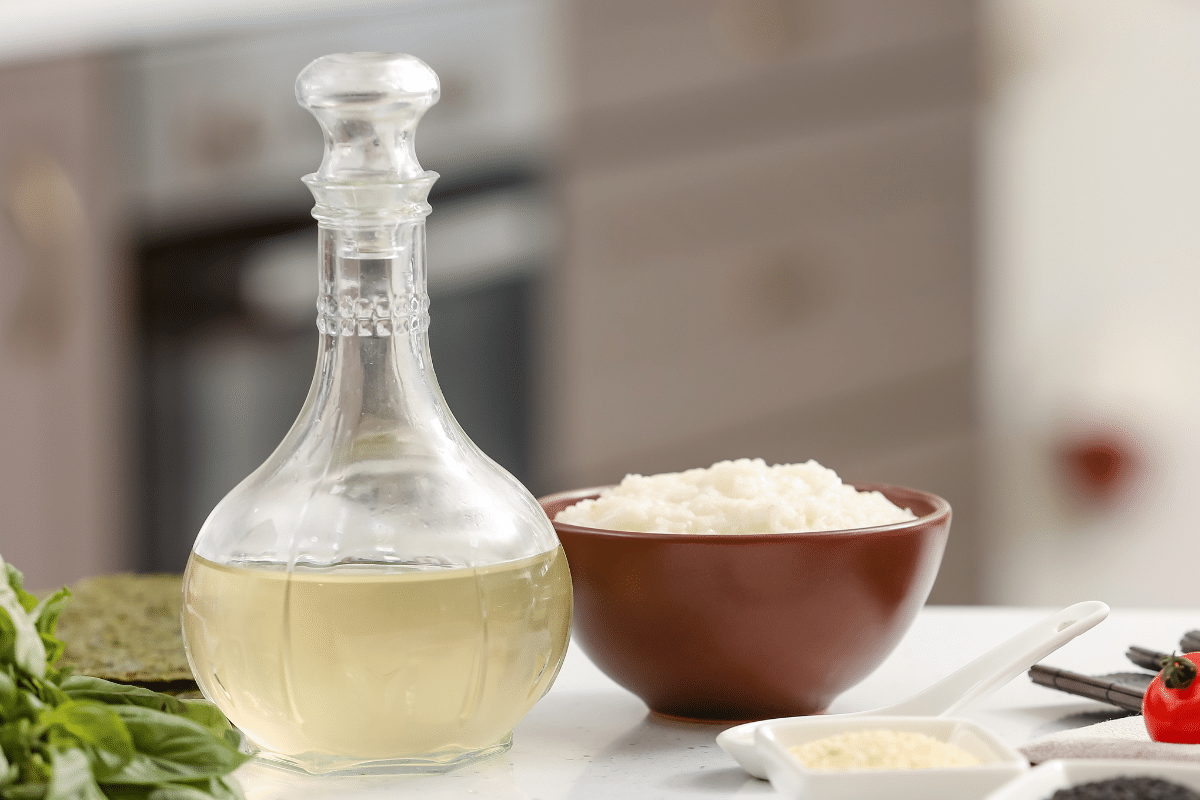
Like champagne vinegar, rice vinegar has moderate acidity, so it’s one of the top choices if you want to imitate the subtle sourness that champagne vinegar has. It also brings a mild sweetness to your dishes.
However, rice vinegar doesn’t have the same fruity notes as champagne vinegar, so it might not be a good idea to use this for dishes that specifically call for that.
As a champagne vinegar substitute, you can use 1 part rice vinegar in a recipe for every part of champagne vinegar.
Balsamic Vinegar
Another excellent substitute for champagne vinegar is balsamic vinegar. While it’s a bit tangier, this vinegar can be used for vinaigrettes and marinades.
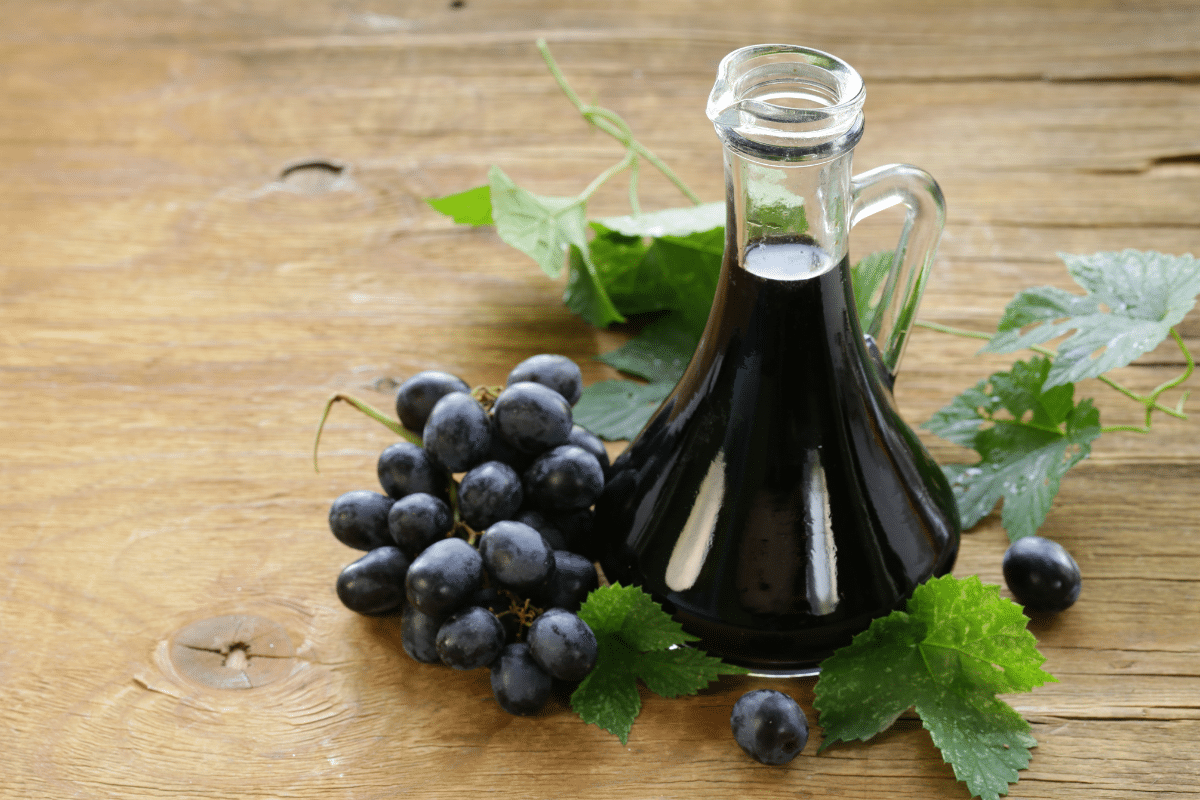
On top of this, balsamic vinegar also has fruity notes, which is good for dishes that call for champagne vinegar for its fruity flavor profile.
However, do note that a little goes a long way when using balsamic vinegar, as champagne vinegar is less potent in flavor. For best results. you can use this vinegar instead of champagne vinegar at a 1/2:1 ratio.
How to Choose the Best Substitute for the Dish
When choosing a vinegar substitute for a dish, you need to remember a couple of things: the ingredient’s role and the flavor profile it brings.
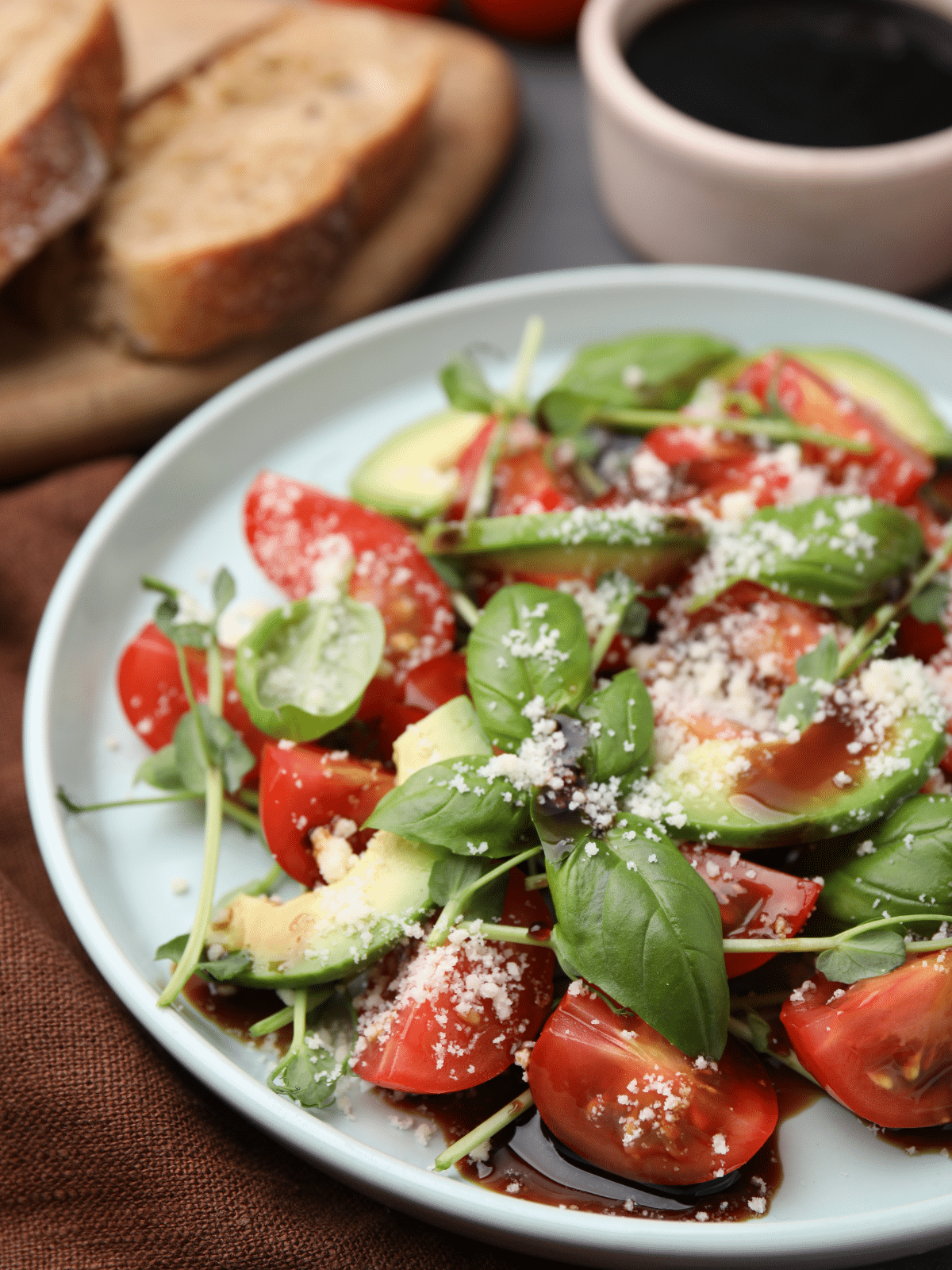
Vinegar is often used in dishes to brighten the flavor and balance everything with mild acidity.
If you’re using champagne vinegar for only subtle acidity, you need to find alternatives with similar subtleness or use sharper kinds of vinegar that are diluted.
For this, you can use rice wine vinegar, which is also moderately acidic. Alternatively, you can use white wine vinegar diluted in water to achieve the same subtle sharpness.
If your dish uses champagne vinegar for a distinct fruity sweetness or tangy flavor, you should look for substitutes with similar notes. Balsamic vinegar and apple cider vinegar are two substitutes that you can use to add fruitiness to your dish.
Pros and Cons of Using a Substitute for Champagne Vinegar
Pros:
- Some types of vinegar are easier to find and are cheaper.
- Some kinds of vinegar offer a more sophisticated flavor profile
- Some kinds of vinegar are multi-use, such as ACV and rice vinegar.
Cons:
- You won’t get the exact fruity flavor notes champagne vinegar has.
- Champagne vinegar has a distinct subtlety that other vinegar types can’t replicate.
- Some types of vinegar don’t work as well to complement certain flavors in a dish compared to champagne vinegar.
FAQs
While you may be tempted to use champagne in place of this type of vinegar – after all, it’s made from champagne – this might not be a good idea.
When substituting champagne vinegar avoid both champagne and white wine. These ingredients don’t have the acidity needed to brighten a dish, which is one of champagne vinegar’s main roles in cooking.
White vinegar is touted to have the highest acidity. With this, it’s brings an extremely potent sharp flavor to dishes.
While you can also use this as a champagne vinegar alternative to dishes, it might be too potent. You need to use much less white vinegar when using it in a dish that needs moderate acidity.
Yes, you can, actually. It’s a great way to repurpose some leftover, flat champagne you may have; you just need to wait a while.
To make homemade champagne vinegar, pour your leftover champagne into a jar. Then, leave it on your counter for the fermentation process, which can be done in one to six months.
Amazing Champagne Vinegar Alternatives
There you have it – the 5 substitutes for champagne vinegar that you can use.
For one reason or another, not all of us have access to champagne vinegar, and that’s totally fine. You don’t have to miss out on delicious meals just because you can’t find one ingredient.
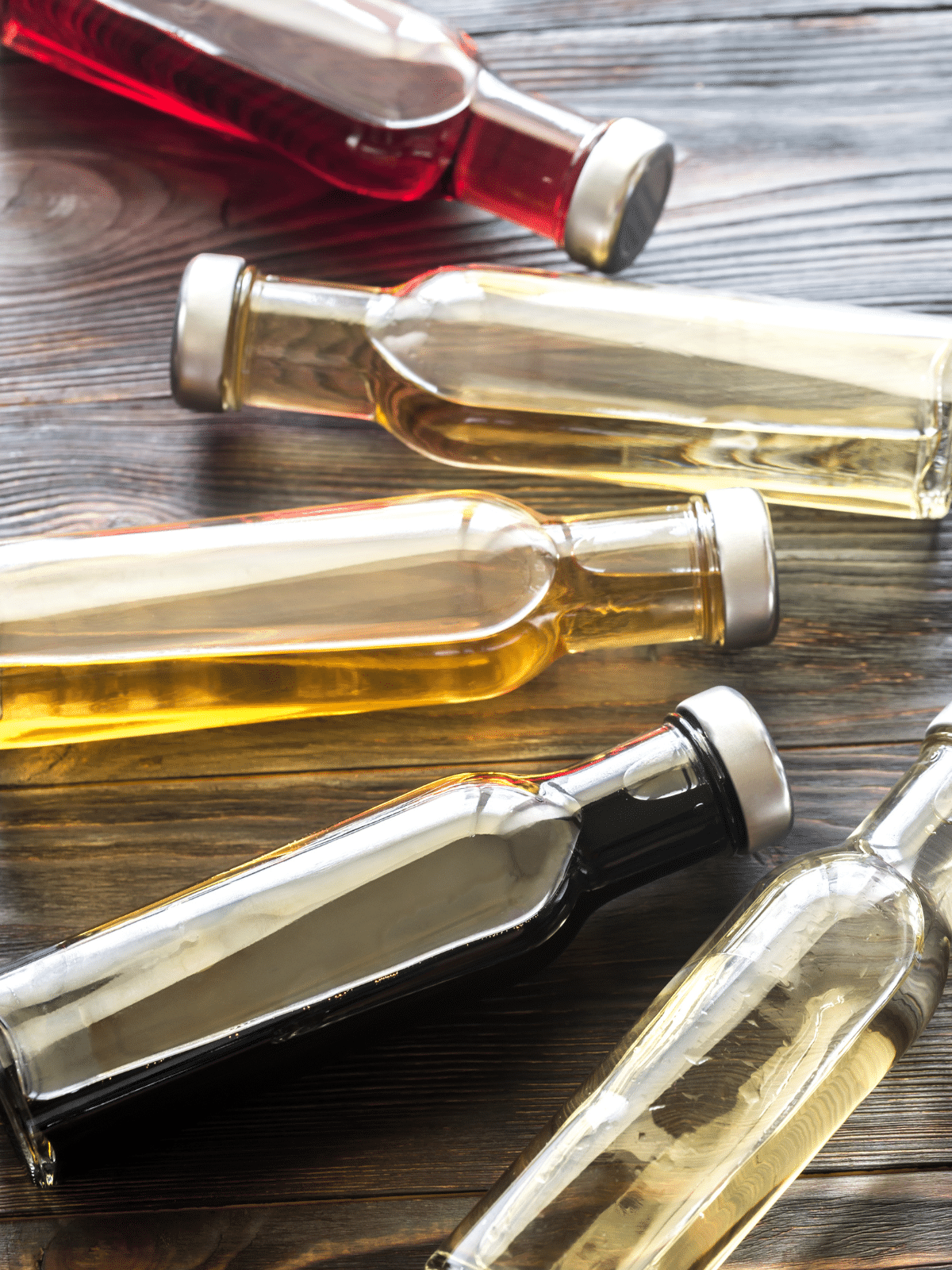
That’s what alternatives are for!
You can use one of these substitutes to create your dish.

